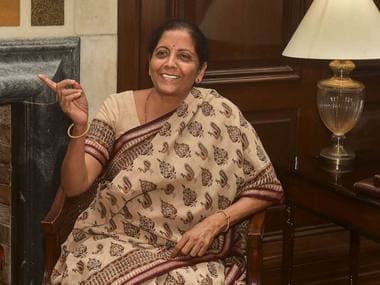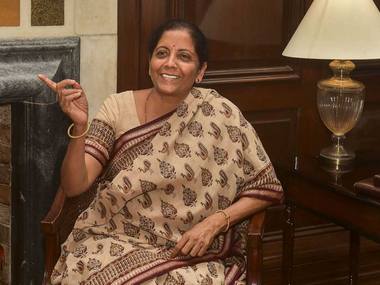Imagine you are a young traveller at the entrance of an airport, in time for your flight, but there is a family in front, with loads of luggage, somewhat mischievous children, and parents who stand confused. A slow guard keeps peering at the Aadhaar card and the face of each passenger in front and is not sure whether the face resembles the person or not. He then scans the ticket printouts and cannot figure out where the names are. You are getting late for no fault of yours. There are two more queues to go, one at the check-in counter where the airline staff, for some mysterious reason, lets some irate passengers get ahead and closes some counter at will. There is one more long queue at the security check, where you encounter more passengers fumbling and bumbling over new rules that require you to take your belt off. Some ignoramus wants to carry a liquor bottle as cabin baggage. Get the feeling? That’s how qualified young entrepreneurs and unemployed youths must be feeling now. For no fault of theirs, on account of past baggage and random acts, their future is being held up even as everybody talks of the economy taking off—much like your flight. It is time for Prime Minister Narendra Modi’s government to act in the interest of the future of the economy and do some unconventional things to put it back on the rails. Er, runway! Look hard and there are clues in the air. Both the fiscal deficit and inflation are reasonably benign for the government to loosen its purse strings a little, spend where it should, and most important of all, not to confuse administrative authoritarianism with fiscal discipline.
The good news is that after general elections that gave a decisive verdict in favour of the Bharatiya Janata Party (BJP), there is both political stability and policy continuity at the Centre that provides a measure of comfort to investors. But Finance Minister Nirmala Sitharaman has to wake up to the reality that her party missed some of the signposts on agriculture, industry and jobs. It is possible to argue that Modi won re-election on the strength of an appeal for strong leadership, a slew of carefully crafted development programmes and an emotional appeal for national security buttressed by the Balakot air strikes in Pakistani territory. But the cows have now come home, and it is time to handle the economy again.
The Congress party may have overstated the problems on the economic front, but its direction was right. Given that we are running into a fiscal year in which the monsoon may be in deficit, there is an urgent need to make sure that a 10-year hangover that goes back to the global financial crisis of 2008 and profligate lending by public sector banks during the period that followed does not become a splitting headache. Four words of advice: Spend more, but prudently. The Fiscal Responsibility and Budgetary Management Act is meant to guide the economy, but you cannot have a fetishist approach on this. There is no doubt that the Modi government controlled the fiscal deficit that went up during his predecessor Manmohan Singh’s UPA government. However, in trying to be a good-boy government that tried to fix everything from coal and spectrum actions to a 10-trillion-rupee non-performing assets (NPAs) burden in the banking system, the NDA has failed to see the demographic reality in which about 50 percent of the population is aged between 20 and 59 and therefore concerned about jobs and incomes. [caption id=“attachment_6738991” align=“alignleft” width=“380”]  File image of Finance Minister Nirmala Sitharaman. Reuters.[/caption] Mercifully, there are some feeble signs from within the government that there is no fetish on the fisc. India closed 2018/19 with the fiscal deficit at 3.39 percent of the GDP, and the interim budget for the current year pegged it at 3.4 percent. Sitharaman may like to revise the target up—assuming it is not done to pump-prime the economy but to mend its structural gaps. The purpose of fiscal discipline is two-fold. A lower fiscal deficit helps control demand and keeps inflation in check, thereby aiding lower interest rates that fuel investment and jobs. It also helps capital become more efficient as the private sector is assumed to be more careful in spending money and boosting productivity. But a good look at India’s economy, in which the grounded Jet Airways has become symbolic of irresponsible lending and borrowing, shows that NPAs may trouble the private sector the way high deficits may hamper governments. The private sector in India, as on Wall Street, has its own reckless side. Also, in the current situation, the problem is not too much demand but not enough demand to aid industry. Inflation is reasonably under control. A difficult monsoon or global oil prices may be things to watch out for, but it is equally important to remember that higher farm prices act as incentives for agricultural growth. What we need is a healthy balance between supply and demand and between the farm sector and the industrial/services sectors. A well laid-out spending plan may well do the trick, if only accompanied by privatisation of slothful giants like Air India. What matters is not the fiscal deficit number but its quality and direction. If public sector banks get more capital, it is good for lending, assuming that is tied to clear norms on transmission of interest rate cuts and policeable prudent lending (No more Jet Airways or Nirav Modis, please!). Spending to help banks revive prudent lending or on measures that create long-term assets like agricultural infrastructure may be the way to go. The forthcoming 5 July Budget should go easy on populist programmes for which the delivery mechanisms are not ready. PM Modi’s first cabinet meeting after his re-election saw him extend his PM KISAN scheme to cover all farmers irrespective of the size of their landholdings, as against the earlier plan to limit it to those with 2 acres or below. That may well be an indicator of the way to go. However, be it farm sector or industrial loans, there should be a framework to check delinquency and defaults. Many measures taken during Modi's first spell in power , such as the rollout of the Goods and Services Tax (GST) regime and the introduction of the Insolvency and Bankruptcy Code are in place already—though the latter smells of judicial (not judicious) bureaucratisation. Administrative and fiscal measures can run in coordination to put the economy back on the rails, but it is important to remember that there is a fine line that divides administrative efficiency from bureaucratic roadblock. Let’s now look at inflation. Retail inflation in May stood at a benign 3.05 percent despite a surge in food prices, with vegetables nearly doubling. That is well below both the May 2018 figure of 4.87 percent and the government’s own target of 4 percent. What the government now needs to do is to take some risks on the fisc to boost jobs, on which it tried to evade responsibility by doing some statistical stonewalling when it refused to look in the eye the National Sample Survey Office’s (NSSO) leaked report that showed unemployment at a 45-year high in 2017 at 6.1 percent. Sitharaman should be able to bite that bullet now, and the way to do it is to remember that spending to fix the future is sometimes better than tightening the belt without a perspective. When the crowd gets restive at the check-in counters, smart airlines are known to open more counters to speed up things. Flights won’t be on time otherwise, or takeoffs won’t be easy. (The writer is a senior journalist and commentator. He tweets as @madversity) Follow full coverage of Union Budget 2019-20 here


)

)
)
)
)
)
)
)
)



